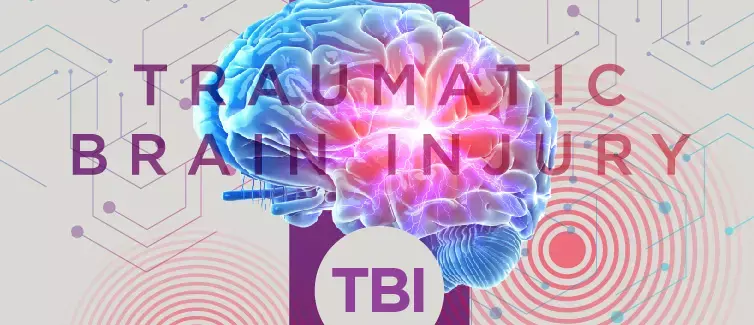- Home
- Medical news & Guidelines
- Anesthesiology
- Cardiology and CTVS
- Critical Care
- Dentistry
- Dermatology
- Diabetes and Endocrinology
- ENT
- Gastroenterology
- Medicine
- Nephrology
- Neurology
- Obstretics-Gynaecology
- Oncology
- Ophthalmology
- Orthopaedics
- Pediatrics-Neonatology
- Psychiatry
- Pulmonology
- Radiology
- Surgery
- Urology
- Laboratory Medicine
- Diet
- Nursing
- Paramedical
- Physiotherapy
- Health news
- Fact Check
- Bone Health Fact Check
- Brain Health Fact Check
- Cancer Related Fact Check
- Child Care Fact Check
- Dental and oral health fact check
- Diabetes and metabolic health fact check
- Diet and Nutrition Fact Check
- Eye and ENT Care Fact Check
- Fitness fact check
- Gut health fact check
- Heart health fact check
- Kidney health fact check
- Medical education fact check
- Men's health fact check
- Respiratory fact check
- Skin and hair care fact check
- Vaccine and Immunization fact check
- Women's health fact check
- AYUSH
- State News
- Andaman and Nicobar Islands
- Andhra Pradesh
- Arunachal Pradesh
- Assam
- Bihar
- Chandigarh
- Chattisgarh
- Dadra and Nagar Haveli
- Daman and Diu
- Delhi
- Goa
- Gujarat
- Haryana
- Himachal Pradesh
- Jammu & Kashmir
- Jharkhand
- Karnataka
- Kerala
- Ladakh
- Lakshadweep
- Madhya Pradesh
- Maharashtra
- Manipur
- Meghalaya
- Mizoram
- Nagaland
- Odisha
- Puducherry
- Punjab
- Rajasthan
- Sikkim
- Tamil Nadu
- Telangana
- Tripura
- Uttar Pradesh
- Uttrakhand
- West Bengal
- Medical Education
- Industry
Brain autoregulation after a severe brain injury

Cerebral autoregulation (CA) may be impaired in patients with traumatic brain . (TBI) and is potentially a significant risk factor for secondary injury
Recently published research paper evaluates the impact of low sampling rate data collection on cerebrovascular reactivity in traumatic brain injury (TBI) patients. The study specifically focuses on the ultra-low-frequency pressure reactivity index (UL-PRx) as a method for estimating cerebral autoregulation. The main objective is to evaluate the performance and predictive power of UL-PRx for 12-month outcome measures and to investigate the potential for optimal cerebral perfusion pressure (CPPopt). The study includes a total of 263 TBI patients, both pediatric and adult, and examines their in-hospital and 12-month mortality as well as Glasgow Outcome Scale Extended (GOSE) at 12 months. The findings reveal that UL-PRx is associated with 12-month outcomes across different age groups, even after adjustment for IMPACT models. UL-PRx is highlighted as a valuable tool for assessing cerebral autoregulation and predicting outcomes in TBI patients. Additionally, the study suggests the potential for more targeted treatment strategies based on the correlation between UL-PRx and CPPopt. The study identifies the potential clinical utility and adaptability of UL-PRx across different age groups and emphasizes the need for further research and clinical applications to enhance TBI management.
Study Limitations and Significance
The study acknowledges some limitations, such as the heterogeneity of the patient cohort in terms of age and the restricted representation to frequencies below 0.0017 Hz due to the ultra-low sampling frequency. However, despite these limitations, the study provides valuable insights into the significance of UL-PRx as a tool for evaluating cerebral autoregulation and predicting outcomes in patients with TBI. This research paves the way for further investigations and potential clinical applications to improve TBI management.
Reference –
Gritti, P., Bonfanti, M., Zangari, R. et al. Cerebral autoregulation in traumatic brain injury: ultra-low-frequency pressure reactivity index and intracranial pressure across age groups. Crit Care 28, 33 (2024). https://doi.org/10.1186/s13054-024-04814-5
MBBS, MD (Anaesthesiology), FNB (Cardiac Anaesthesiology)
Dr Monish Raut is a practicing Cardiac Anesthesiologist. He completed his MBBS at Government Medical College, Nagpur, and pursued his MD in Anesthesiology at BJ Medical College, Pune. Further specializing in Cardiac Anesthesiology, Dr Raut earned his FNB in Cardiac Anesthesiology from Sir Ganga Ram Hospital, Delhi.
Dr Kamal Kant Kohli-MBBS, DTCD- a chest specialist with more than 30 years of practice and a flair for writing clinical articles, Dr Kamal Kant Kohli joined Medical Dialogues as a Chief Editor of Medical News. Besides writing articles, as an editor, he proofreads and verifies all the medical content published on Medical Dialogues including those coming from journals, studies,medical conferences,guidelines etc. Email: drkohli@medicaldialogues.in. Contact no. 011-43720751


